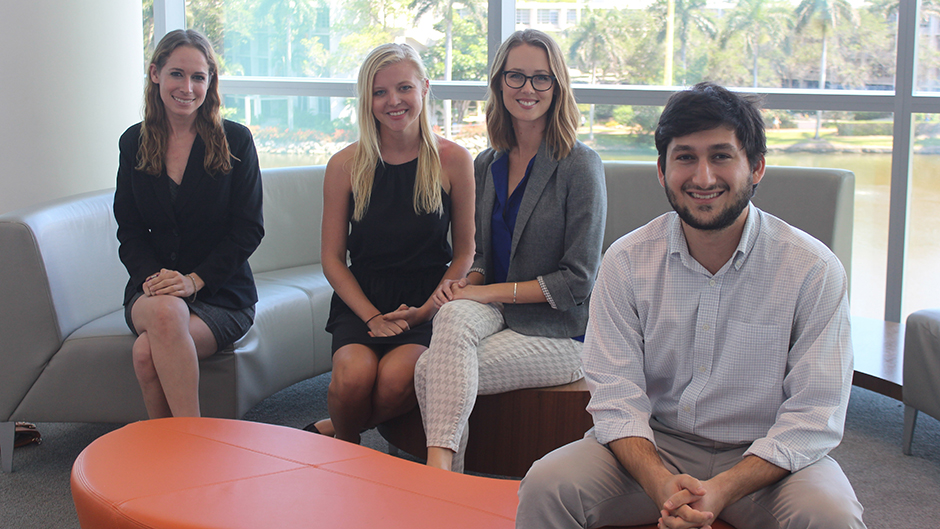In two separate victories this semester, students in Miami Law’s Immigration Clinic represented two Jamaican LGBT individuals seeking protection from homophobic violence in their home country. Both of the Clinic’s clients were threatened with death and one was attacked. Under U.S. immigration law, immigrants who fear persecution or torture in their country of origin can file for asylum, withholding of removal, or relief under the Convention Against Torture.
Jamaica criminalizes certain sexual conduct under a sodomy law. As the U.S. State Department has recognized, violence against members of the LGBT community in Jamaica is widespread, and the Jamaican police are complicit in the abuse.
“Knowing that our client would be sent back into a world where he was likely to be severely beaten, incarcerated, or even beheaded compelled me to be the best advocate possible,” said second-year clinic student Stephanie Rosendorf.
Her clinic partner, second-year student Kirsten Corneliussen, said, “The most heart-wrenching part of working on this asylum case was putting our client in a situation where he had to relive and relay the horrible abuses he endured in Jamaica. However, this process was a necessary step to prepare him to tell his story and we were able to build a relationship of trust with him.”
“The Immigration Clinic saved my life,” said Rosendorf and Cornelius’s client. “During the asylum process, I was nervous and didn’t think I could get through it. But I remembered Kirsten and Stephanie’s encouragement and preparation and I was able to get through it. The Immigration Clinic is very professional, thorough and compassionate. It is the best immigration clinic in the world!”
Bennett Blachar and Erin Evashevski, also second-year students, represented a Jamaican man detained at Krome Service Processing Center who sought relief under the Convention Against Torture.
“I knew Jamaica was a dangerous place for people in the LGBT community, but the more I researched the issue and interviewed our client, the more clear it became that this case truly meant life or death for him,” said Evashevski. “The high stakes for our client pushed me to work harder.”
As part of preparing their client’s case in court, the students had to establish that their client was bisexual. “It was initially difficult because our client had to hide his bisexuality, even in the United States,” said Blachar. “He was constantly in the company of Jamaicans who simply did not accept LGBT individuals. We spent countless hours interviewing our client, and he opened up to us. Seemingly trivial details became leads, we secured the evidence we needed, and he won his case.”
Blachar and Evashevski’s client was also grateful for the Clinic’s help. “If it were not for the clinic I would not be here today,” he said. “Bennett and Erin put more effort into my case than a paid lawyer. Words cannot express how it felt to find them when I was in the worst position of my life. I don’t think anyone else can understand what their help truly means to me.”
“I am proud of the top notch representation our students provided our clients,” said Professor Rebecca Sharpless, Director of the Immigration Clinic. “The students’ hard work paid off in victories for their clients and the students gained invaluable lawyering skills.”
The Immigration Clinic is part of UM Law’s Clinical Program in which second and third year students represent clients and work on advocacy projects under the supervision of faculty members.

